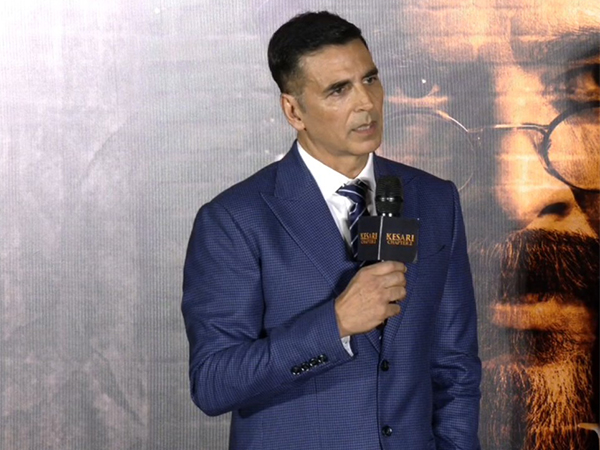Delhi: Large tumour removed from man's food pipe at Sir Gangaram Hospital
May 15, 2023

New Delhi [India], May 15 : Endoscopy surgery to remove a tumour of the size of 6.5 cm from a 30-year-old man's food pipe was performed successfully at Sir Ganga Ram Hospital (SGRH) in Delhi, said the hospital authorities on Sunday.
The doctors who performed the surgery said that it was one of the largest tumours), removed endoscopically, in India/
Prof Anil Arora, Chairman, Institute of Liver Gastroenterology and Pancreatico Biliary Sciences, Sir Ganga Ram Hospital, said, "We recently removed a large submucosal tumour (6.5 cm in size) from the food pipe (esophageal leiomyoma-A tumour arising from the muscular layer of esophagus and protruding into the lumen causing dysphagia) in a 30-year-old male patient presenting with difficulty in swallowing. To our knowledge, this was one of the largest tumours, removed endoscopically, in India."
He said that this procedure is known as submucosal tunnelling and endoscopic resection (STER).
"These types of large tumours are traditionally removed by surgery which has far more morbidity, is more expansive and is associated with a longer hospital stay," he said.
According to Dr Shivam Khare, Consultant, Department of Gastroenterology, Sir Ganga Ram Hospital, "While elaborating the steps of procedure said that In this STER procedure, Firstly we injected saline at the base of tumour that helped us lift the tumour, and create a tunnel all around it by dissection of fibrous tissue, around the tumour, and in separating it from all layers of the food pipe."
"Once the tumour got separated, we were able to scoop the tumour into the lumen (cavity) of esophagus from the submucosal tunnel behind the esophageal wall into the esophageal lumen. Subsequently, the tumour was successfully retrieved from the mouth and the patient was discharged after two days with the gradual resumption of the normal diet," he added.
Prof. Anil Arora said, "Endoscopic removal of the large tumour is a challenging task. Generally, regular oval-shaped smooth esophageal tumours up to 3 cm in size can be removed endoscopically by an expert endoscopist but in our case, the tumour was more than 6 cm in size with a lobulated irregular pear-shaped configuration. Irregular shape makes it difficult to separate the tumour from all layers of the food pipe."
Dr Shivam Khare added that the second challenge was the sheer size of the tumour as it created hurdles not only in mobilizing it out of the submucosal tunnel into esophageal lumen but also in getting it out from esophagus via the throat through the mouth. Fortunately, a wide range of accessories and endoscopic instruments helped us in the successful completion of the procedure without any complications."
Prof. Anil Arora said, "With a state of art facility & availability of new advanced endoscopic technologies, we routinely perform many such endoscopic procedures like peroral endoscopic myotomy (POEM) for achalasia cardia, endoscopic mucosal resection or submucosal dissection (EMR/ESD) for superficial early gastrointestinal cancers ushering in a new era of endoscopic diagnosis and treatment of benign and malignant lesions of the gastrointestinal tract."
"Recent developments in the field of Therapeutic endoscopy have opened the doors of a new world of minimally invasive, incision-less, nonsurgical treatment for various tumours lying within the lumen and the wall of the Gastrointestinal tract," the hospital authorities said.
"With the availability of high-tech endoscopy equipment, providing high-resolution real-time visualization of inner cavities and walls of esophagus (food pipe), stomach and intestine, now, it is, not only possible, to diagnose cancer in the early stage of its development, but also to carry out a possible curative treatment by deft endoscopic manoeuvres, using advance endoscopic machines and instruments," they added.
















